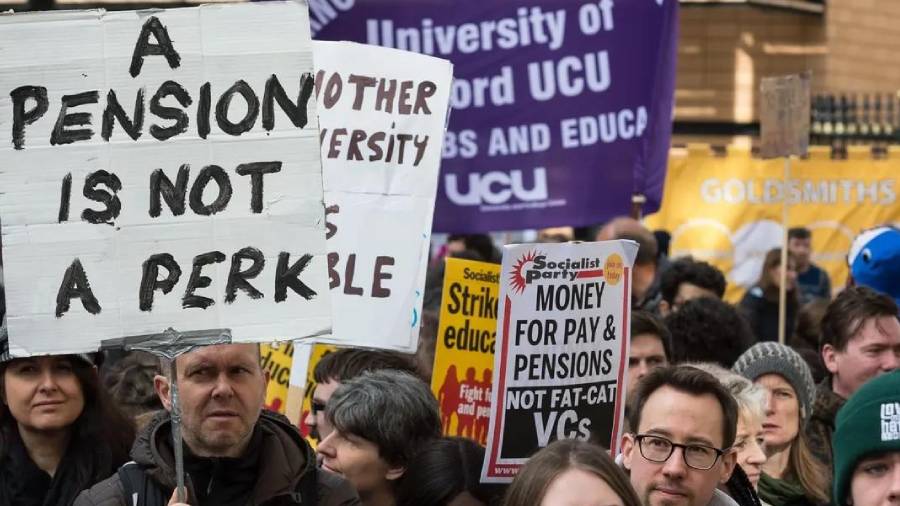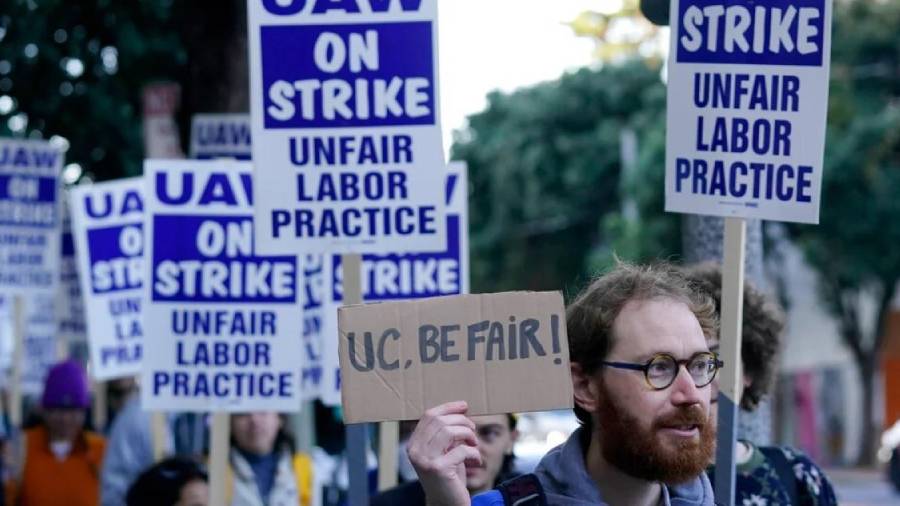Underpaid scientific labour has been systematically justified, if not internalised, by the very intellectual community whose standards of living and passion for building a science-conscious society are being invisibly compromised. The status quo seems to be challenged by the recent academic workers’ strike at the very core of Western capitalist nations, the United States of America and the United Kingdom, where cost-cutting in the academia has been institutionalised in the name of market competency in scientific endeavours. Around 48,000 academic workers from the University of California went on strike demanding full-time wages and academic benefits (picture, top); about 70,000 academic workers, covering 150 universities across the UK, took part in the university strike (picture, bottom).

Sourced by The Telegraph
Demands for respectable academic contracts with adequate living wage and social security are not surprising. Numerous underpaid academic employees are burdened with the rising costs of living and pre-existing debts. Many of them are now realising that the university system has forced them into indebtedness by encouraging the marketisation of education and the delegitimisation of rightful, free college education.
Hypothetically speaking, if the cost-of-living crisis subsides by short-run economic management, should university employees forget the demands for better academic pay and social security benefits for their junior peers? No, they should not. Evidence suggests that decades of low wages for academic labour are detrimental: for instance, research at the University of Colombia found that persistent low wages are linked to a faster decline in memory.
Underpaid wage combined with increasing work dissatisfaction and diminished career prospects among researchers is a reflection of a structural crisis in the labour market of science. Scientific research is undoubtedly a risky and expensive venture. But why should economic vulnerability be imposed on doctoral students, postdoctoral fellows and trainees? Policy-instituted economic insecurity is harmful to the nurturing of scientific passion and innovation. It also undermines the emancipatory potential of scientific projects for society.
The slogan, “U.C., U.C., you can’t hide! We can see your greedy side”, echoing from the walls of campuses, is emblematic of the sentiment of every underpaid researcher across the globe. Scientists are leaving academia in response to low wages. Economic security and academic freedom are two fundamental conditions that must be met to stem the tide.
Such anxiety-inducing economic penury has been persistent in the scientific community. Post-doctoral fellows are being forced to accept underpaid wages in the form of stipends and fellowships. However, despite the growing disenchantment, researchers are delivering remarkable innovations.
There is an additional dimension to the crisis. The underpayment of the scientific community — researchers and others — may have wider societal consequences. What society is receiving in terms of returns, such as scientific innovation and endeavours, is only a small percentage of what researchers are capable of. If ideal conditions — fairer wages and intellectual freedom — are met, the returns from the scientific community would be greater.
Jameel Barkat is a postdoctoral fellow at the Institute of Biomedicine, University of Gothenburg, Sweden. Amit Sadhukhan is Assistant Professor of Economics, Tata Institute of Social Sciences, Hyderabad











